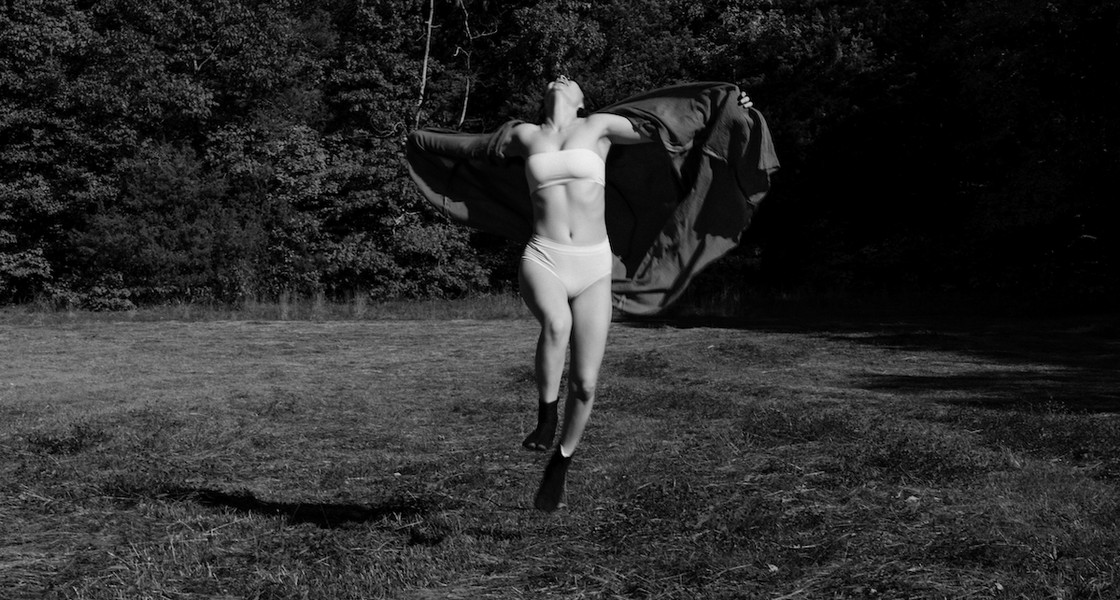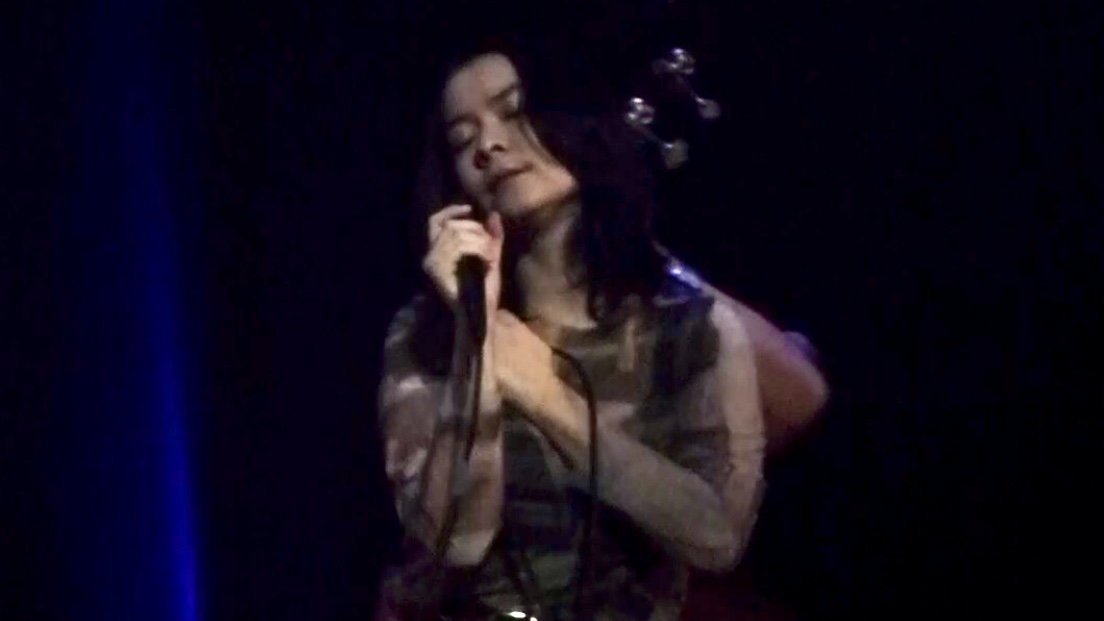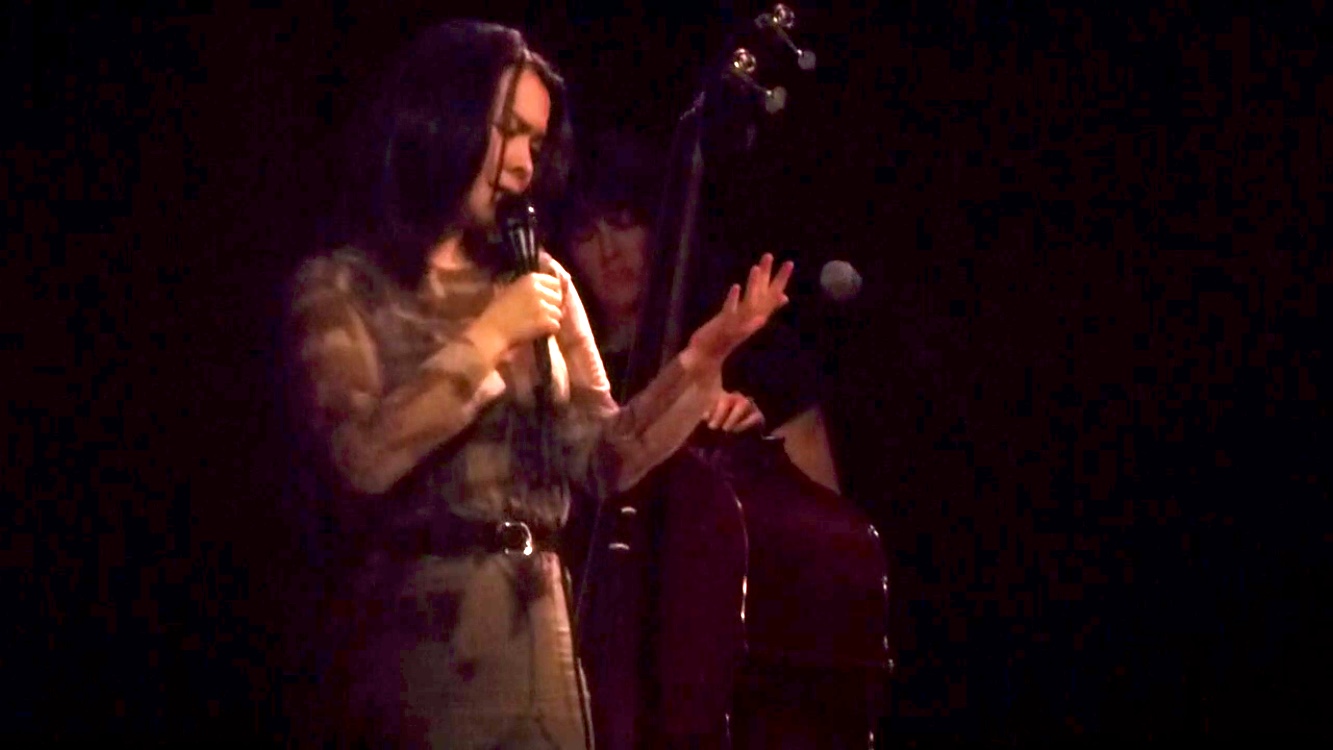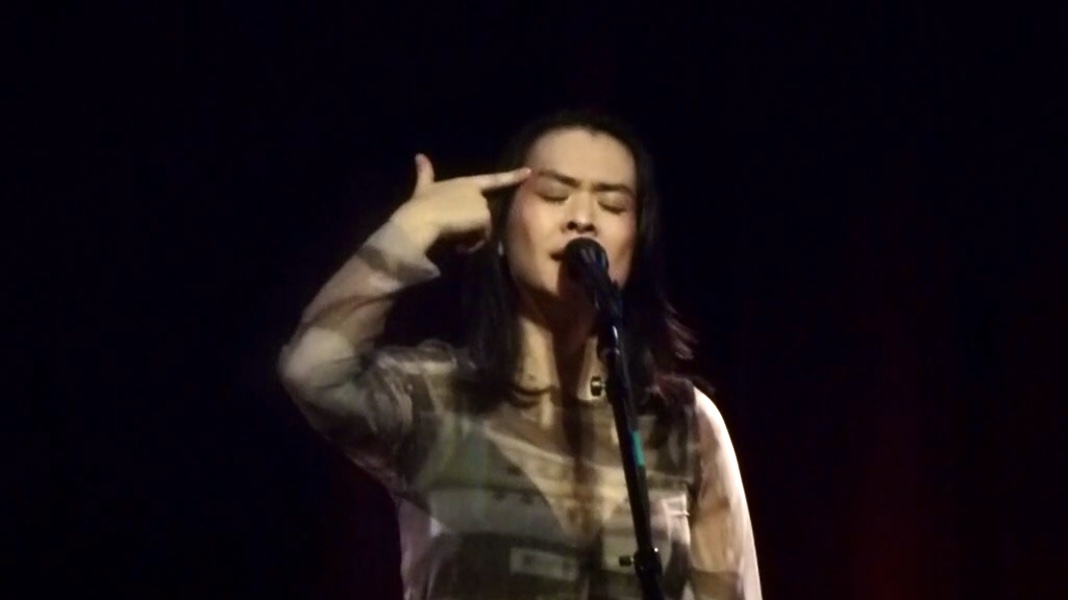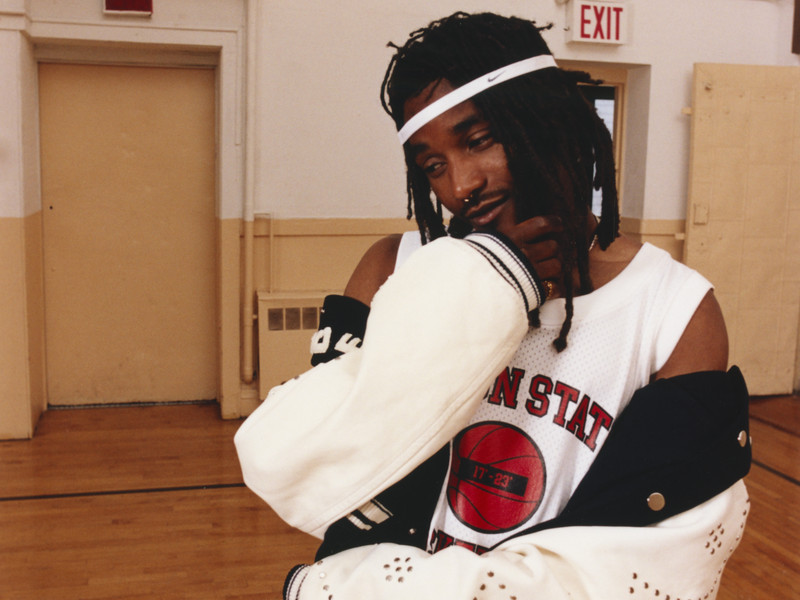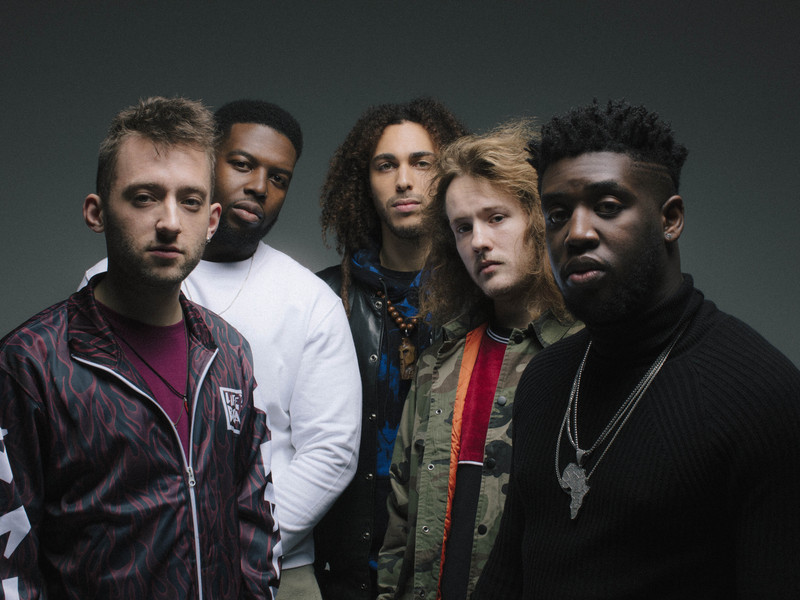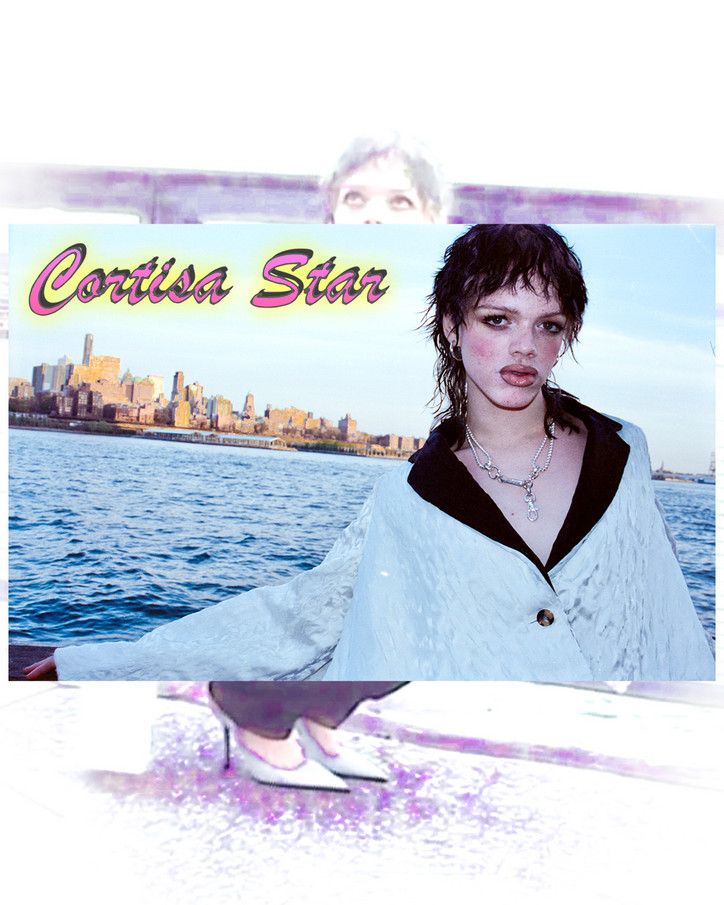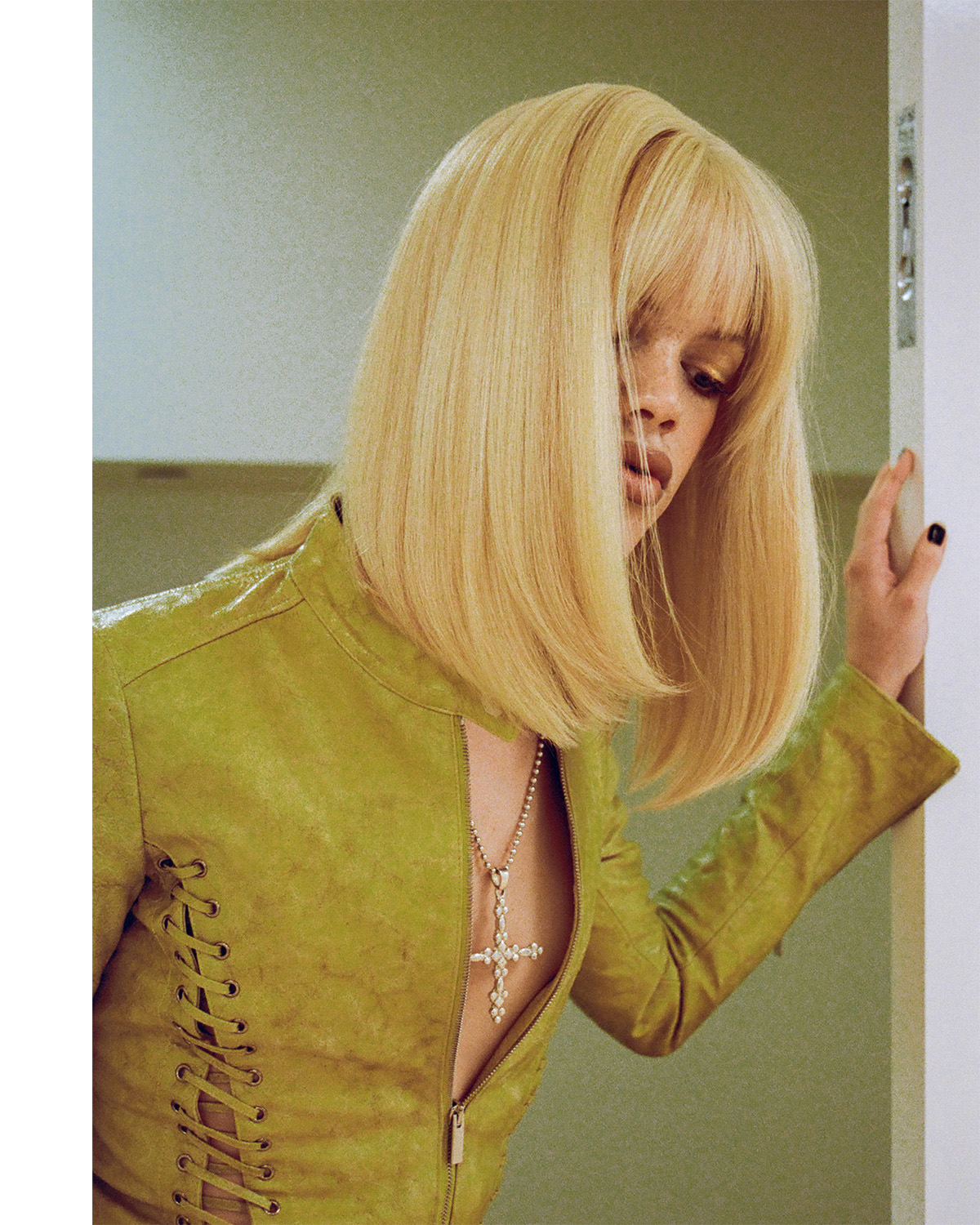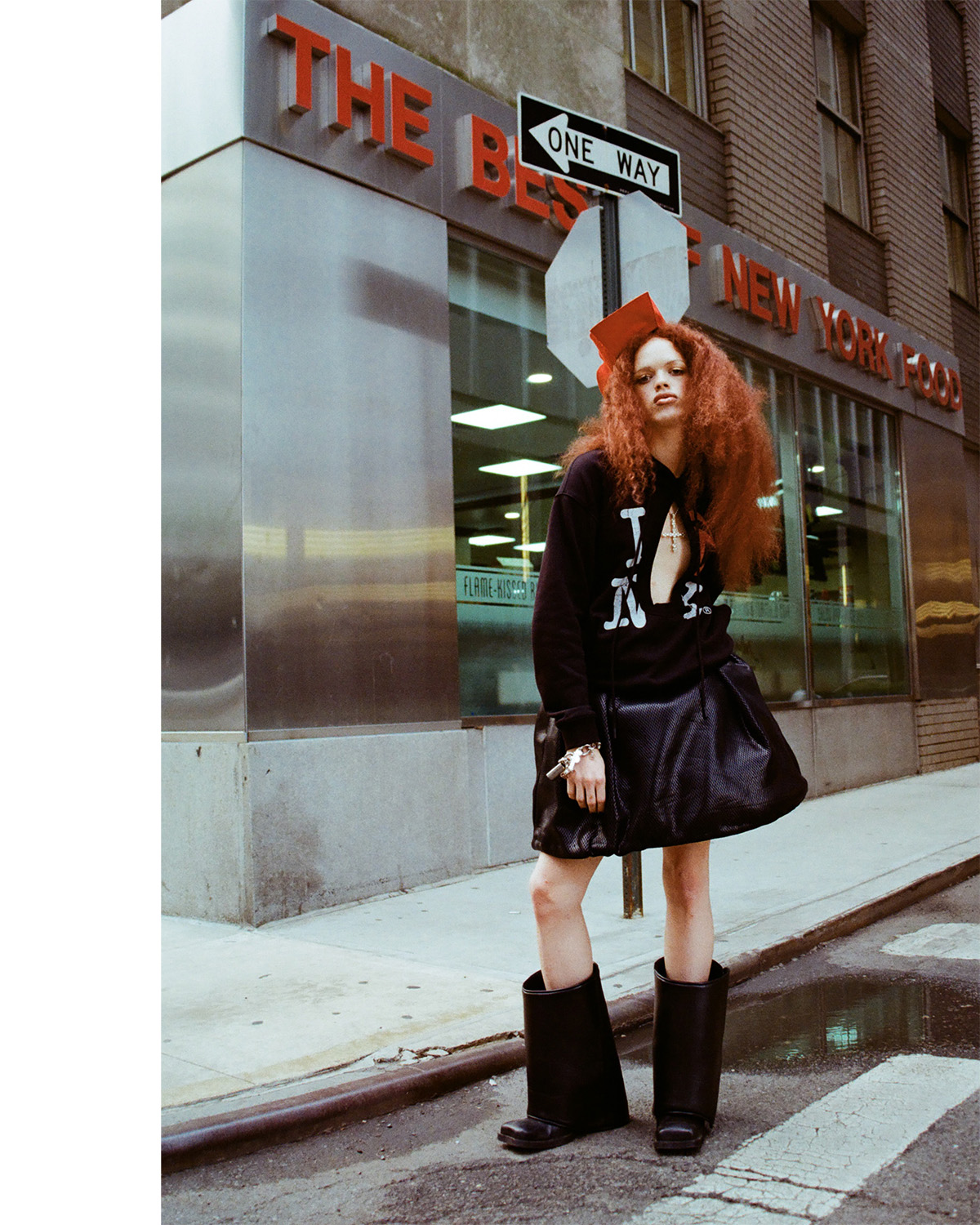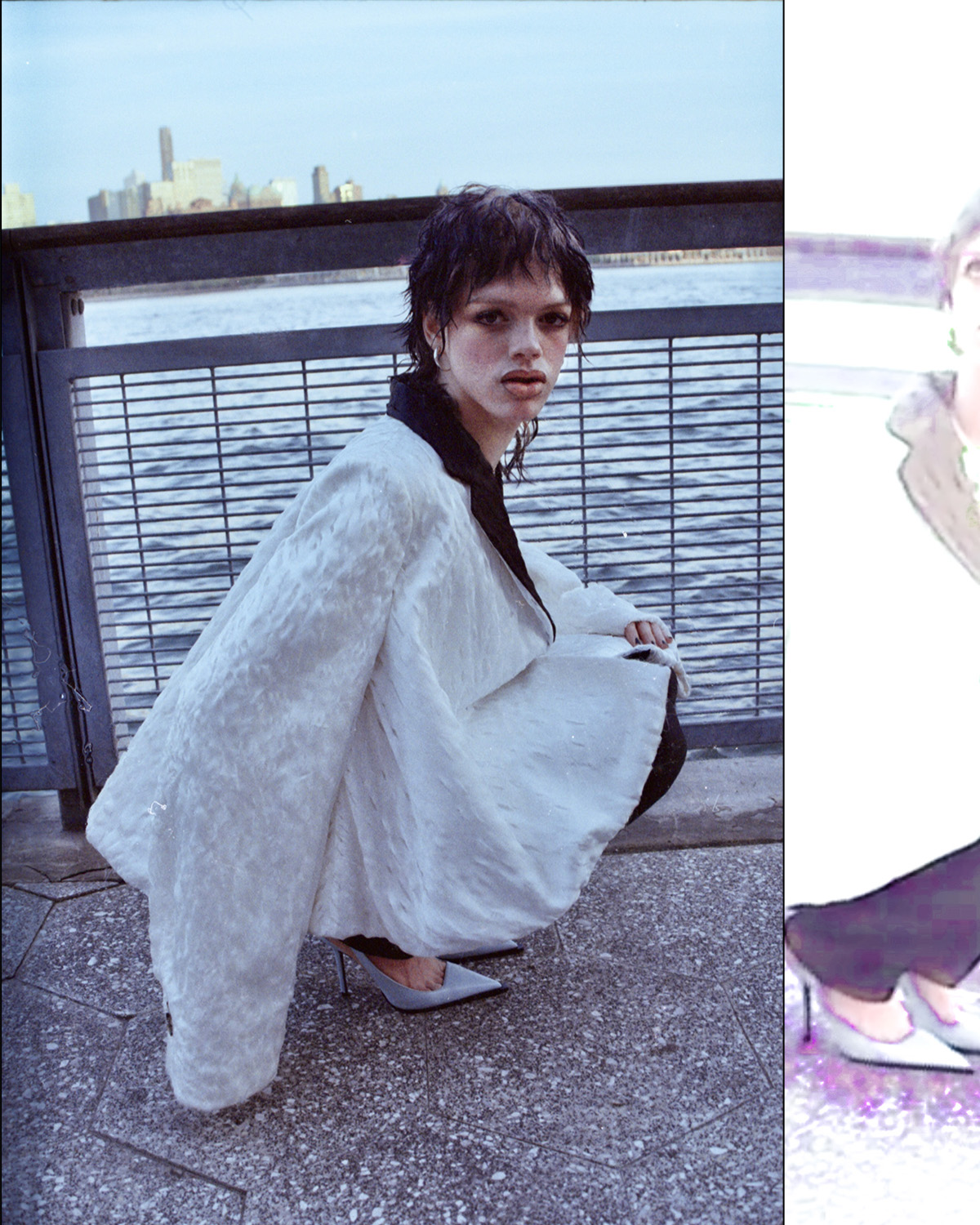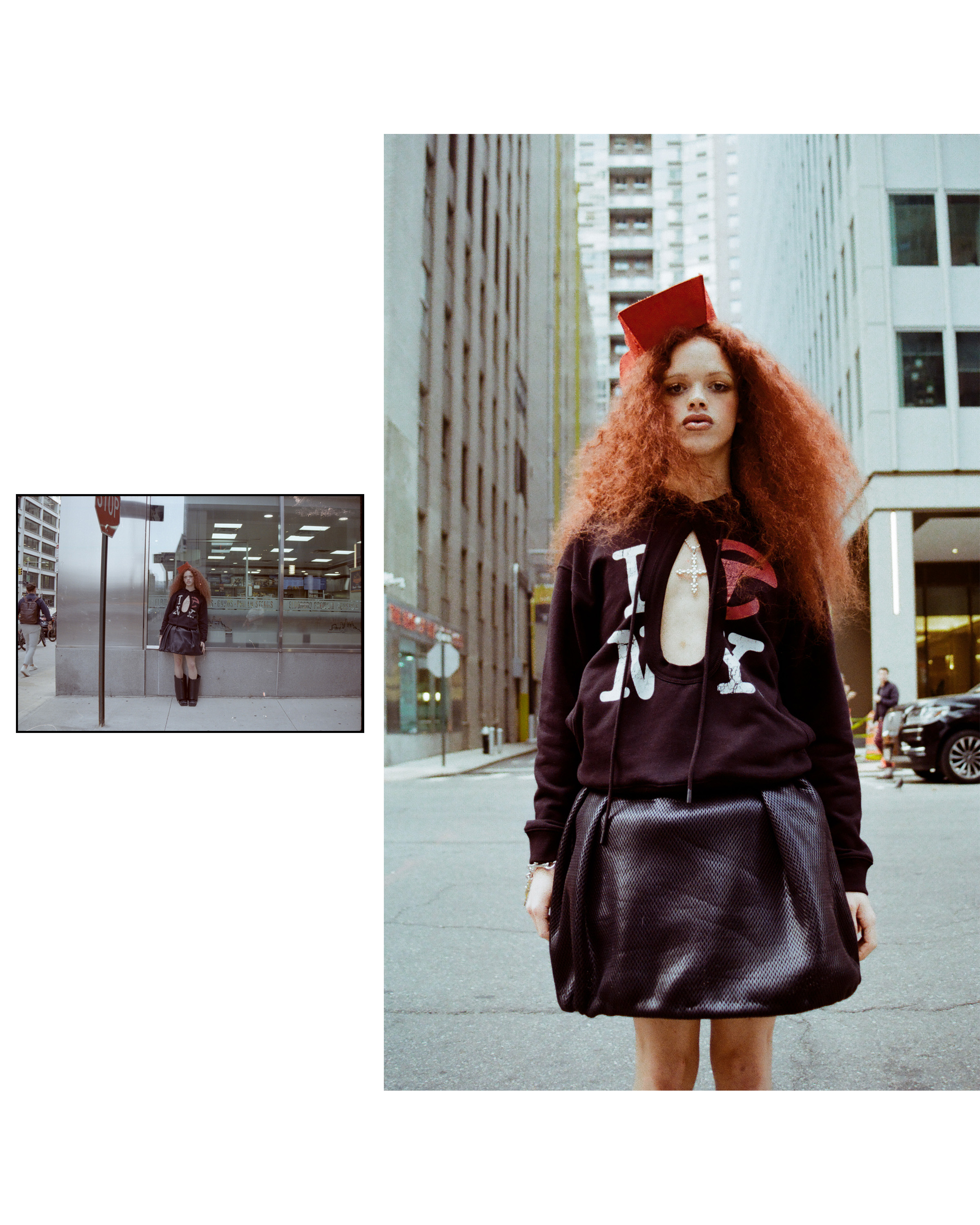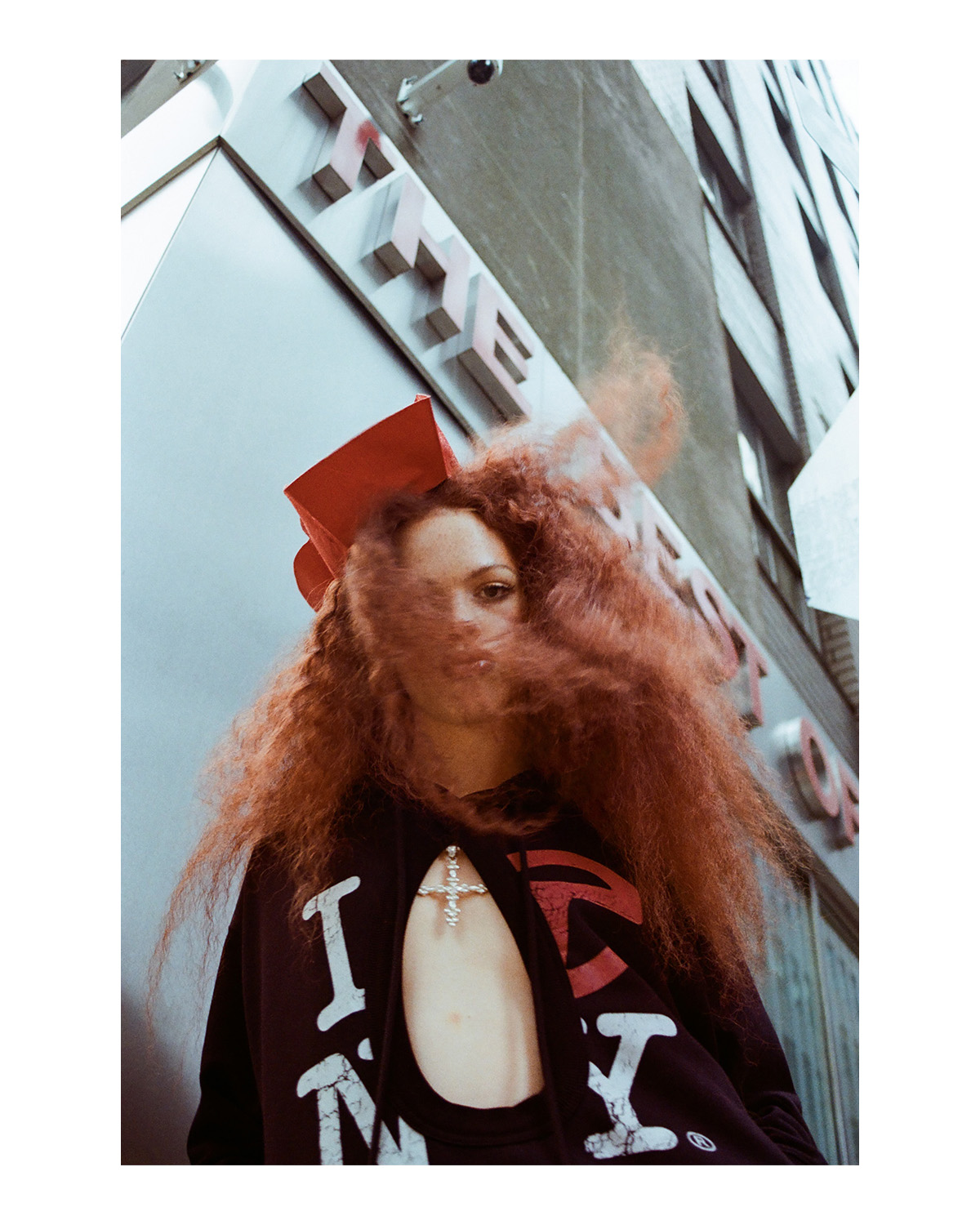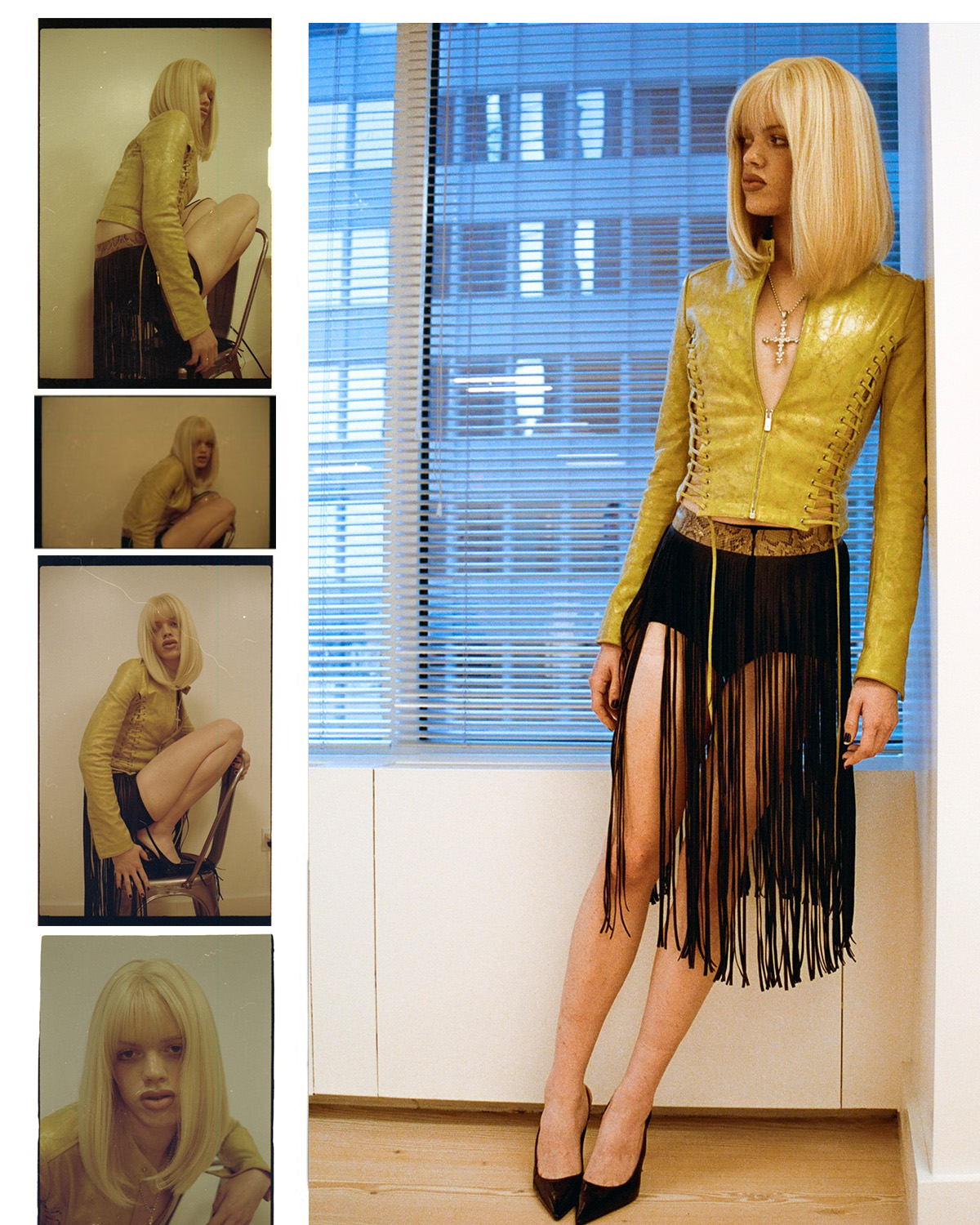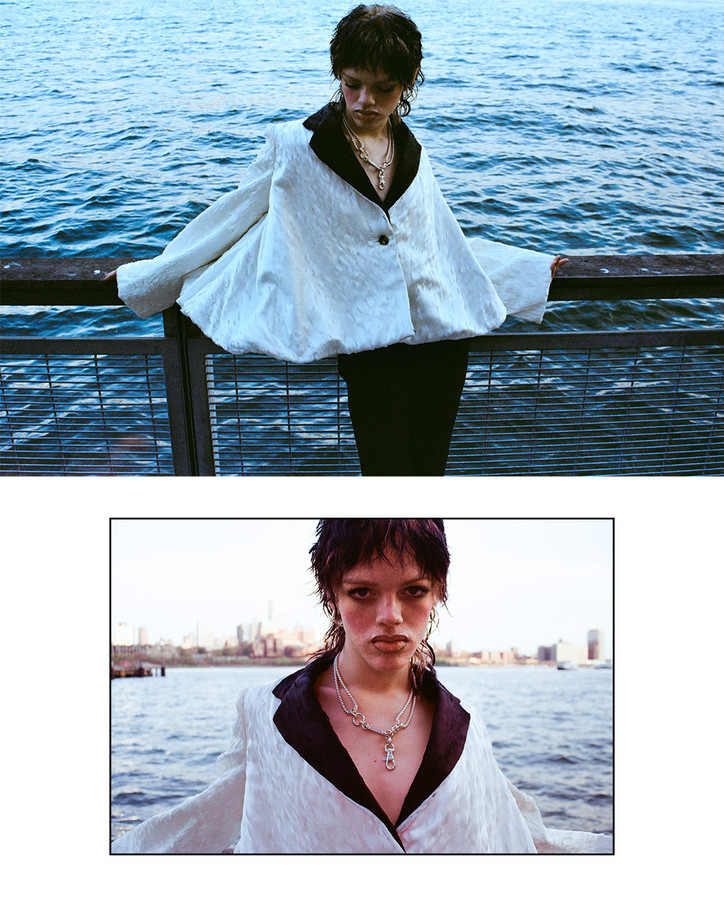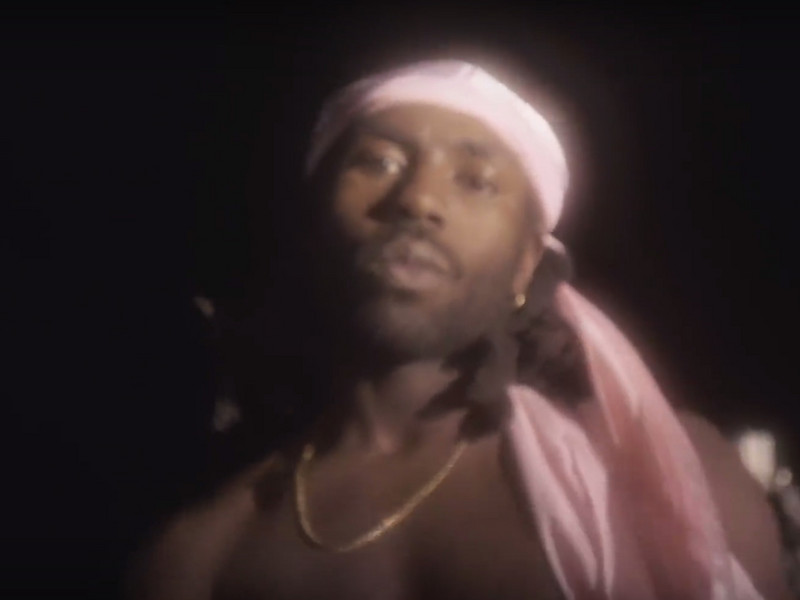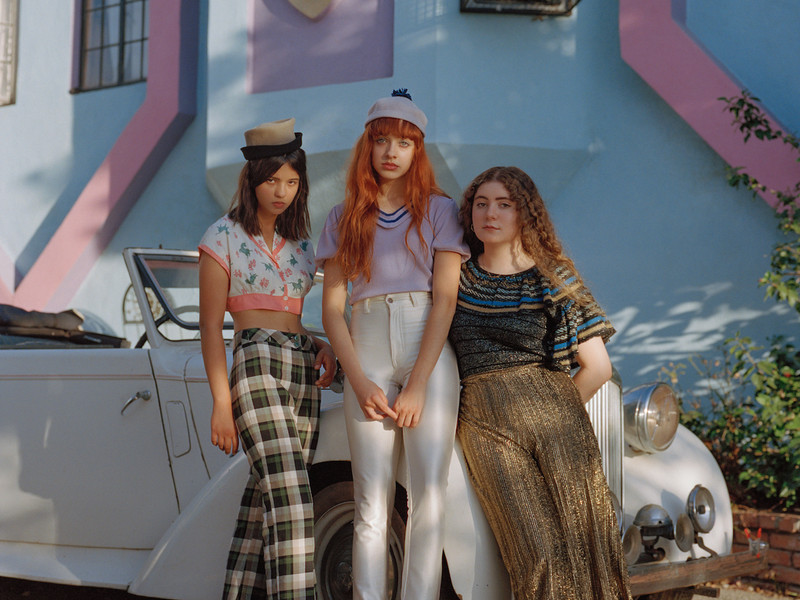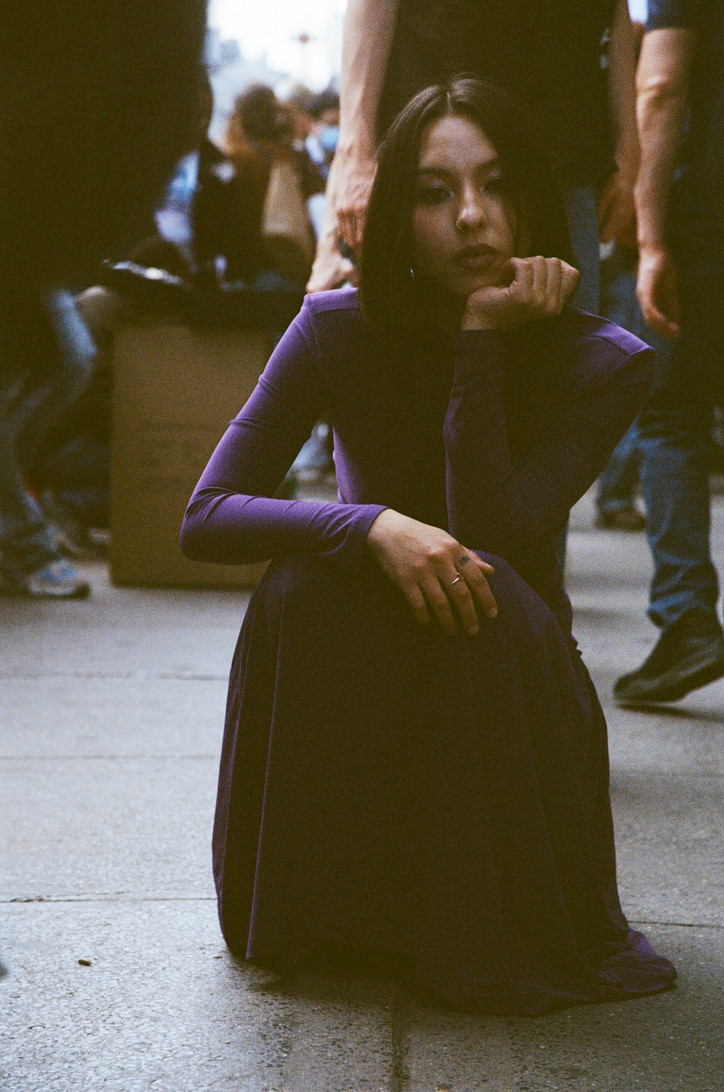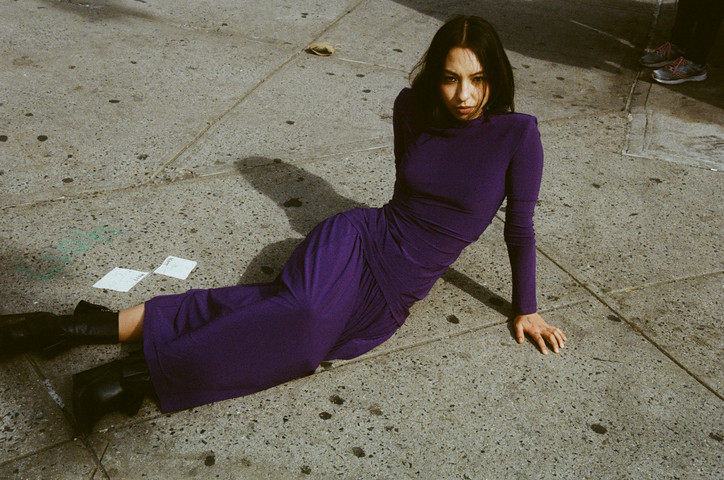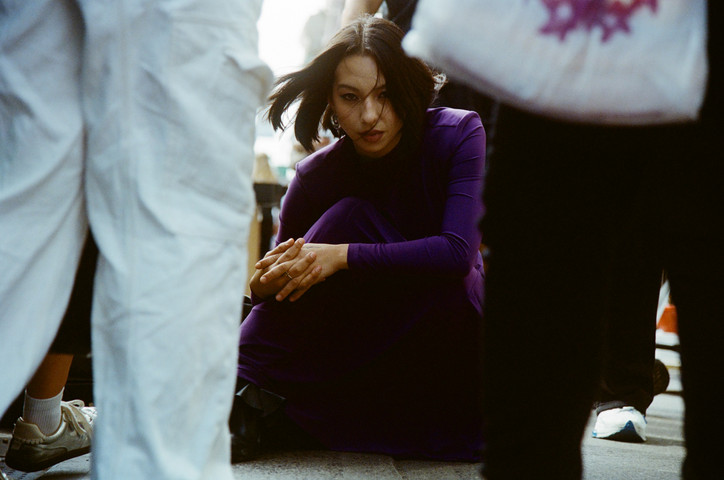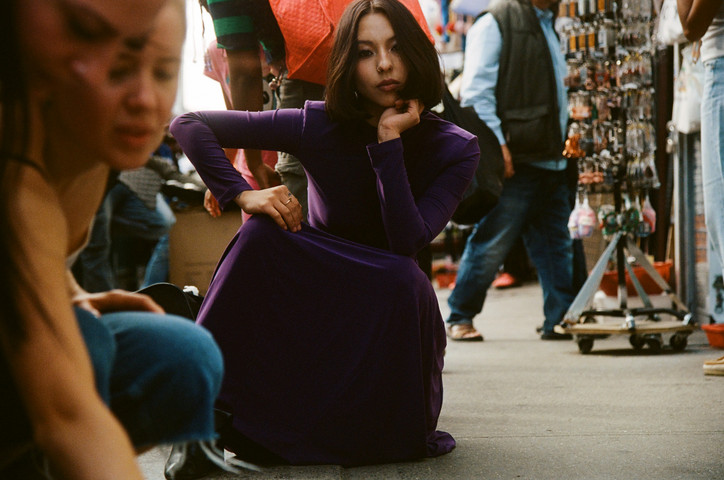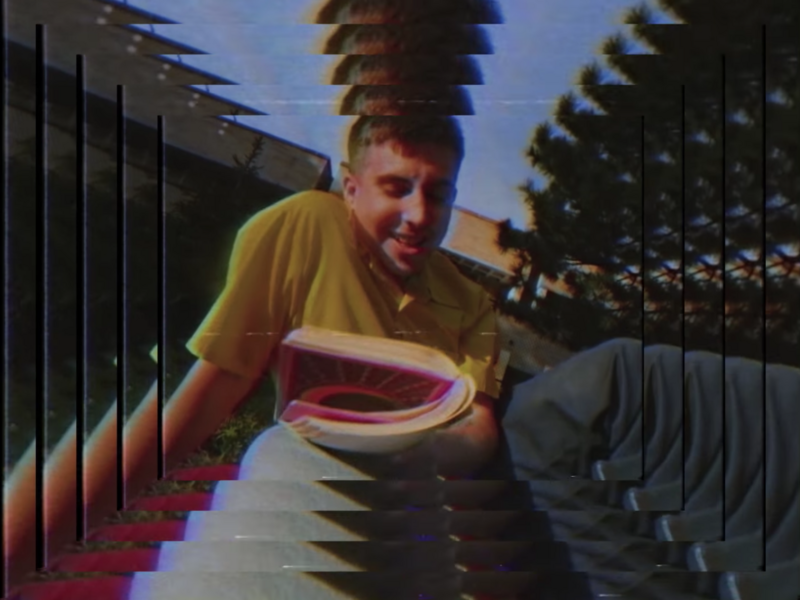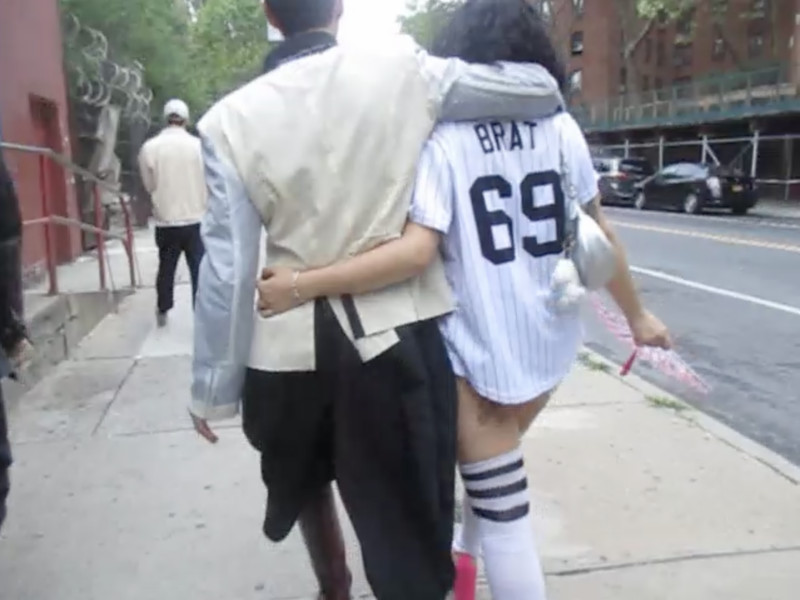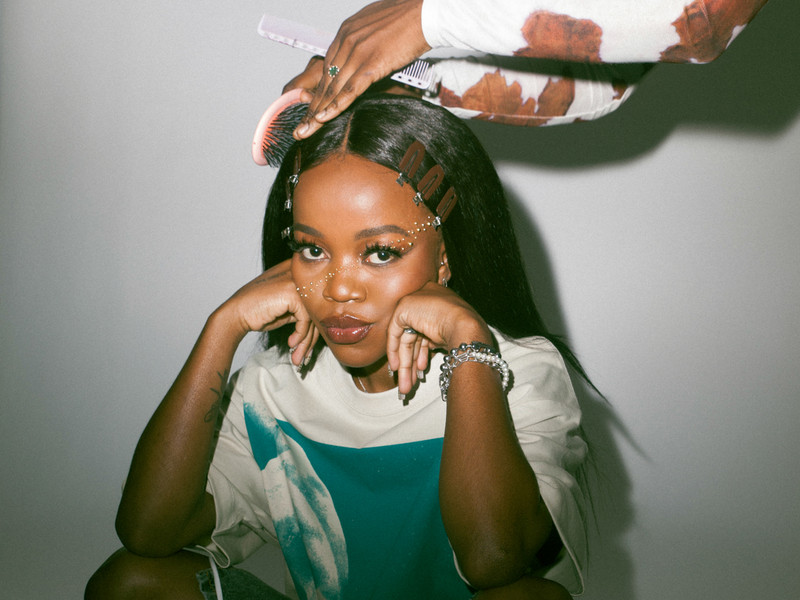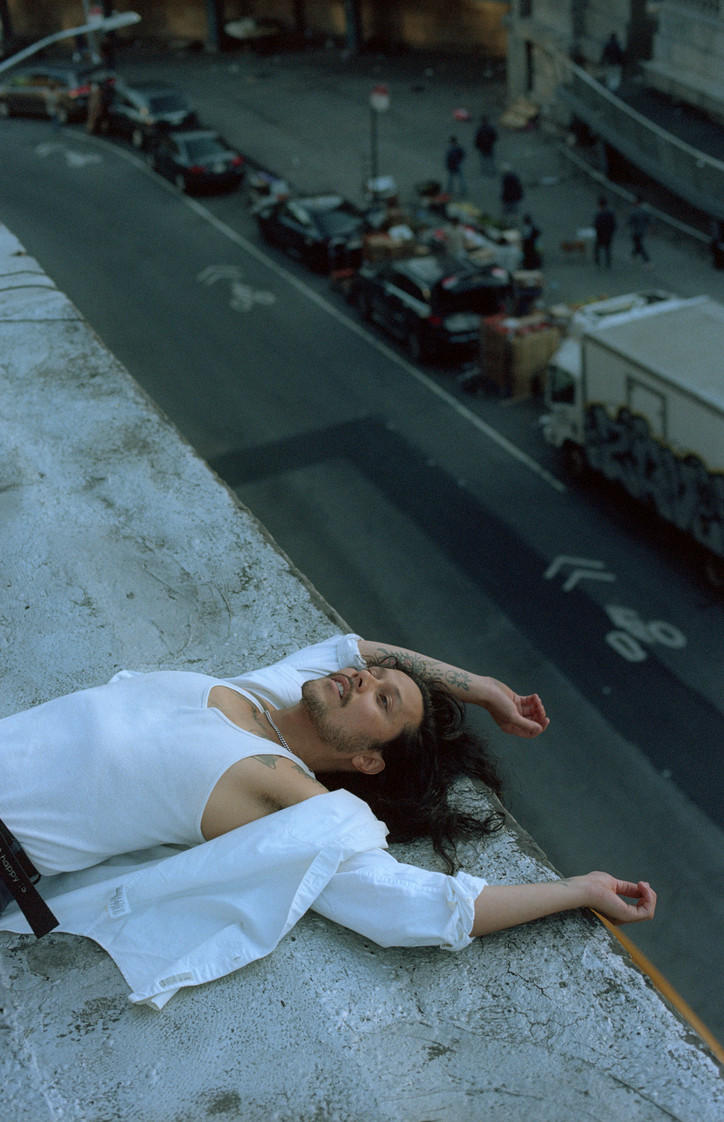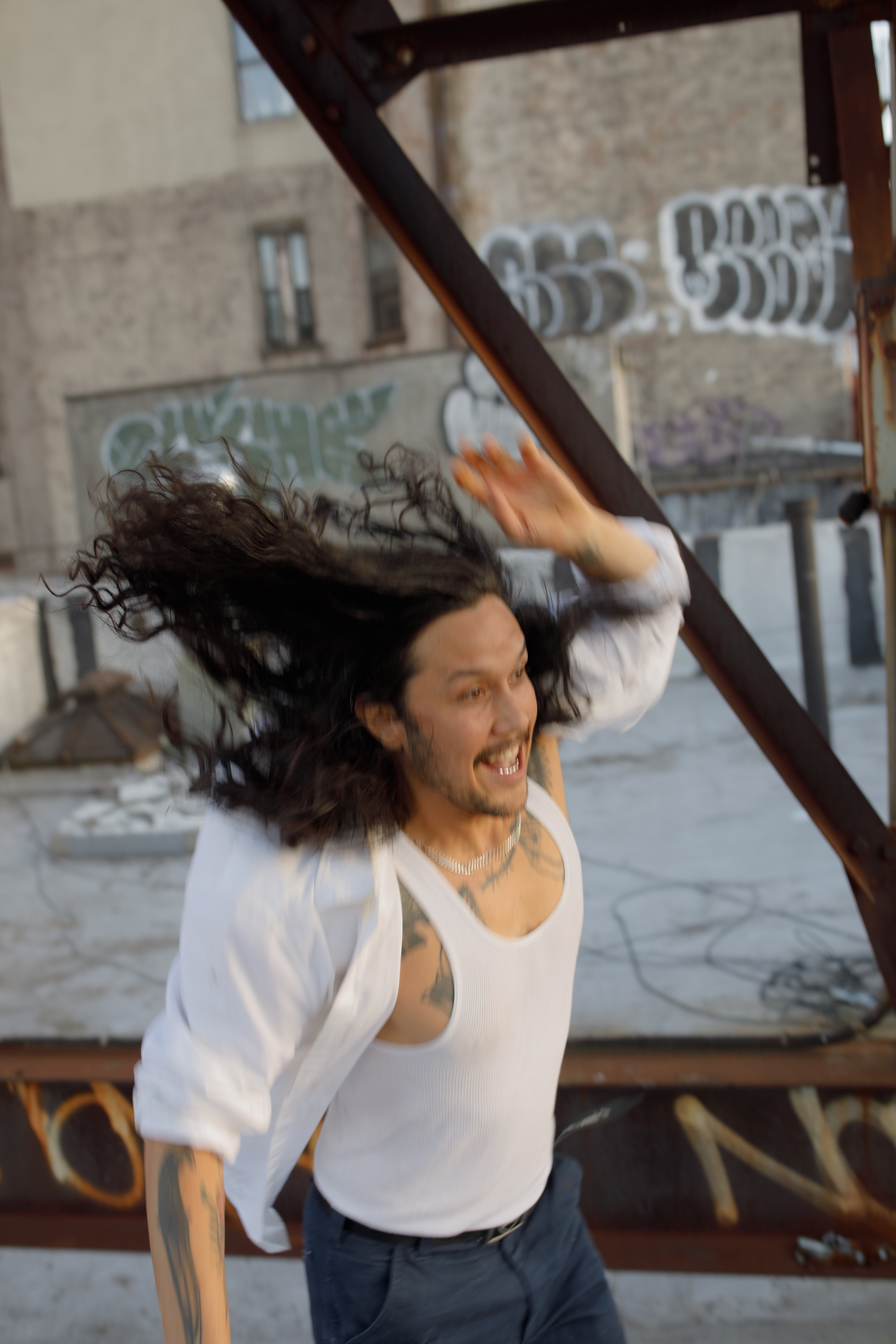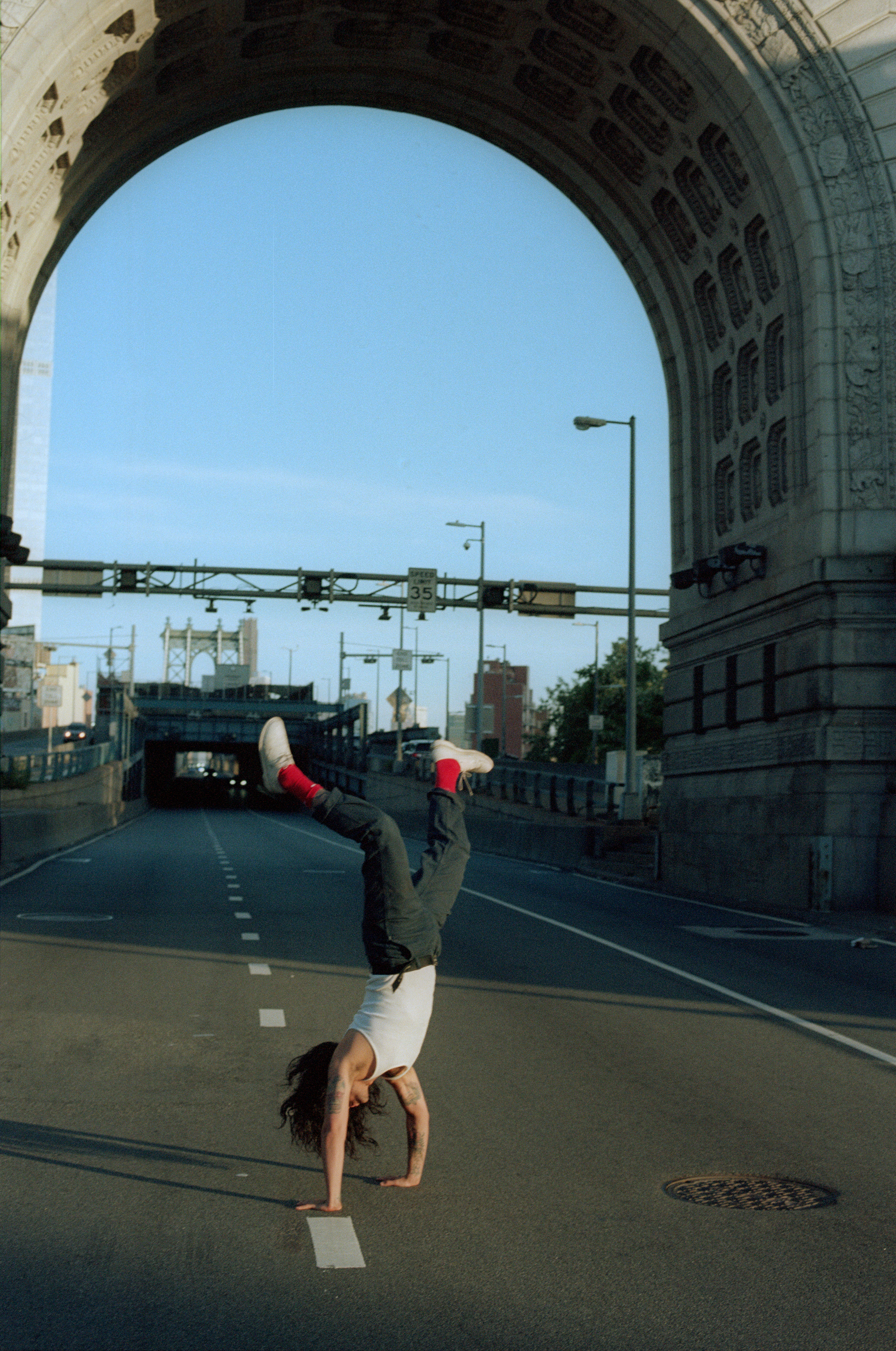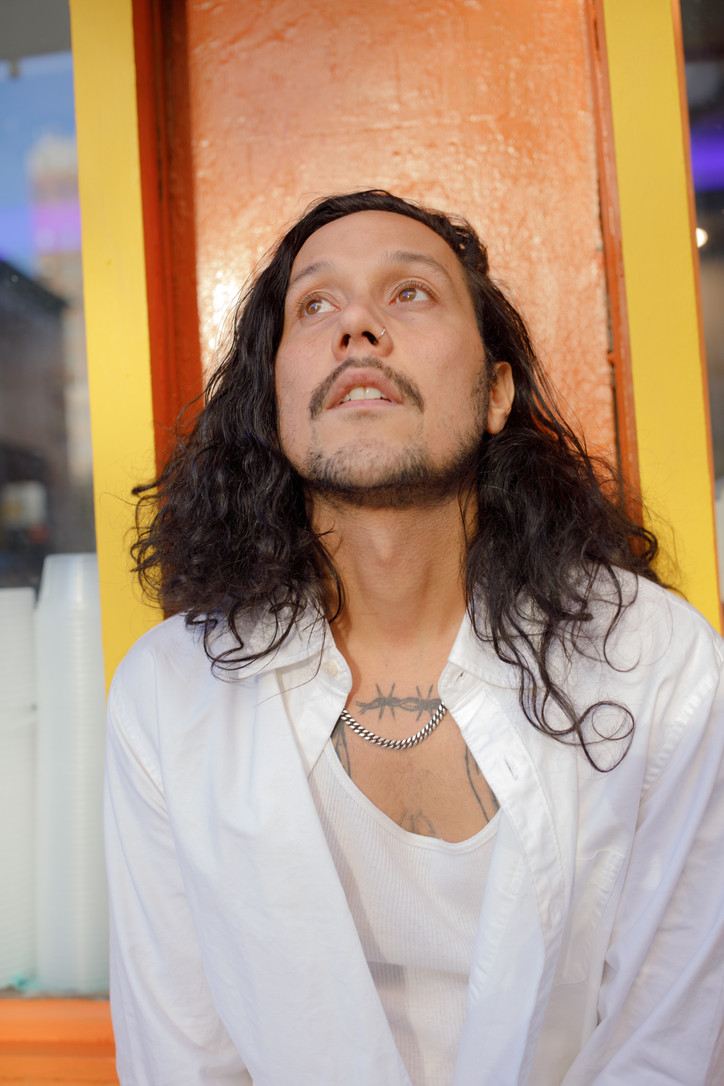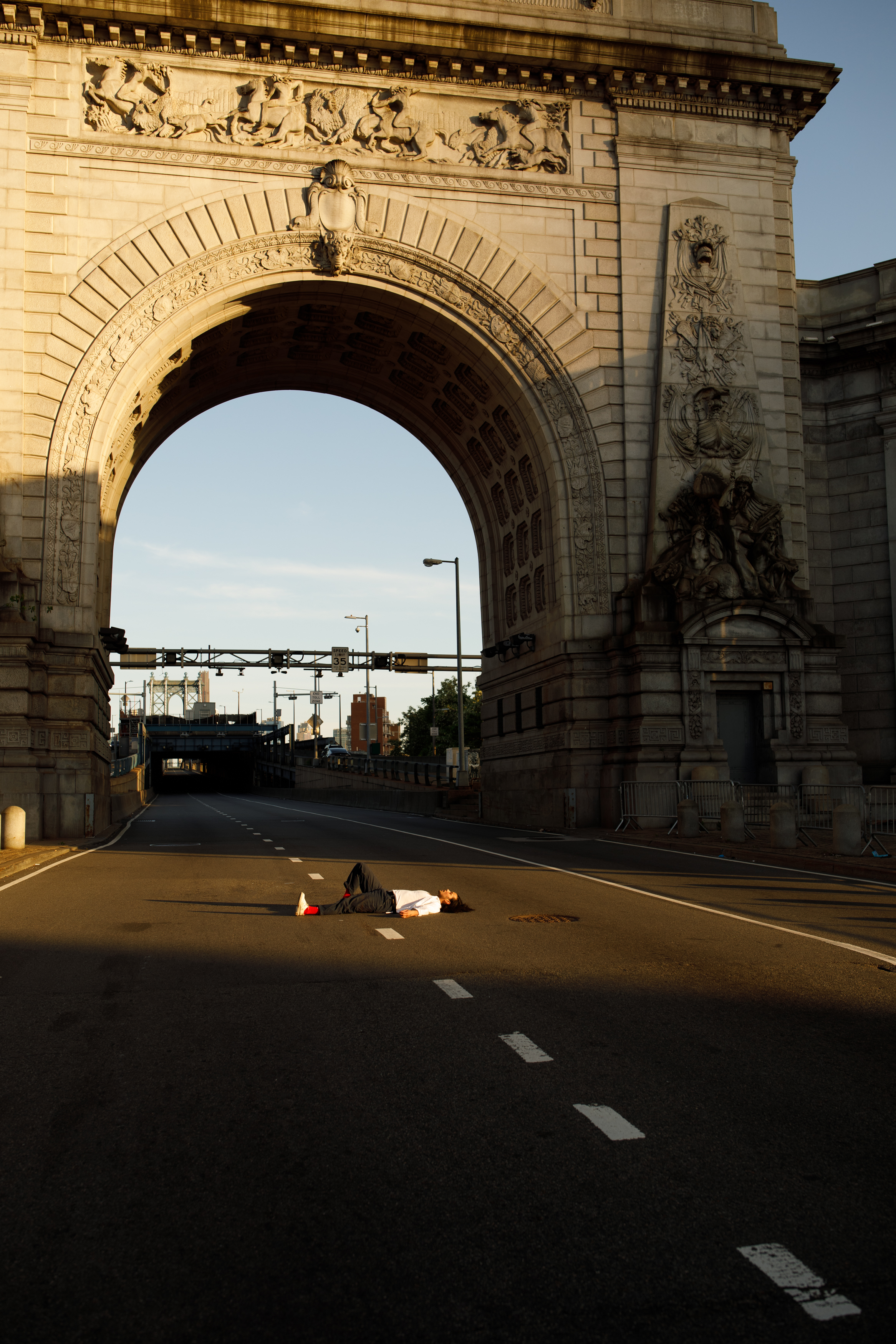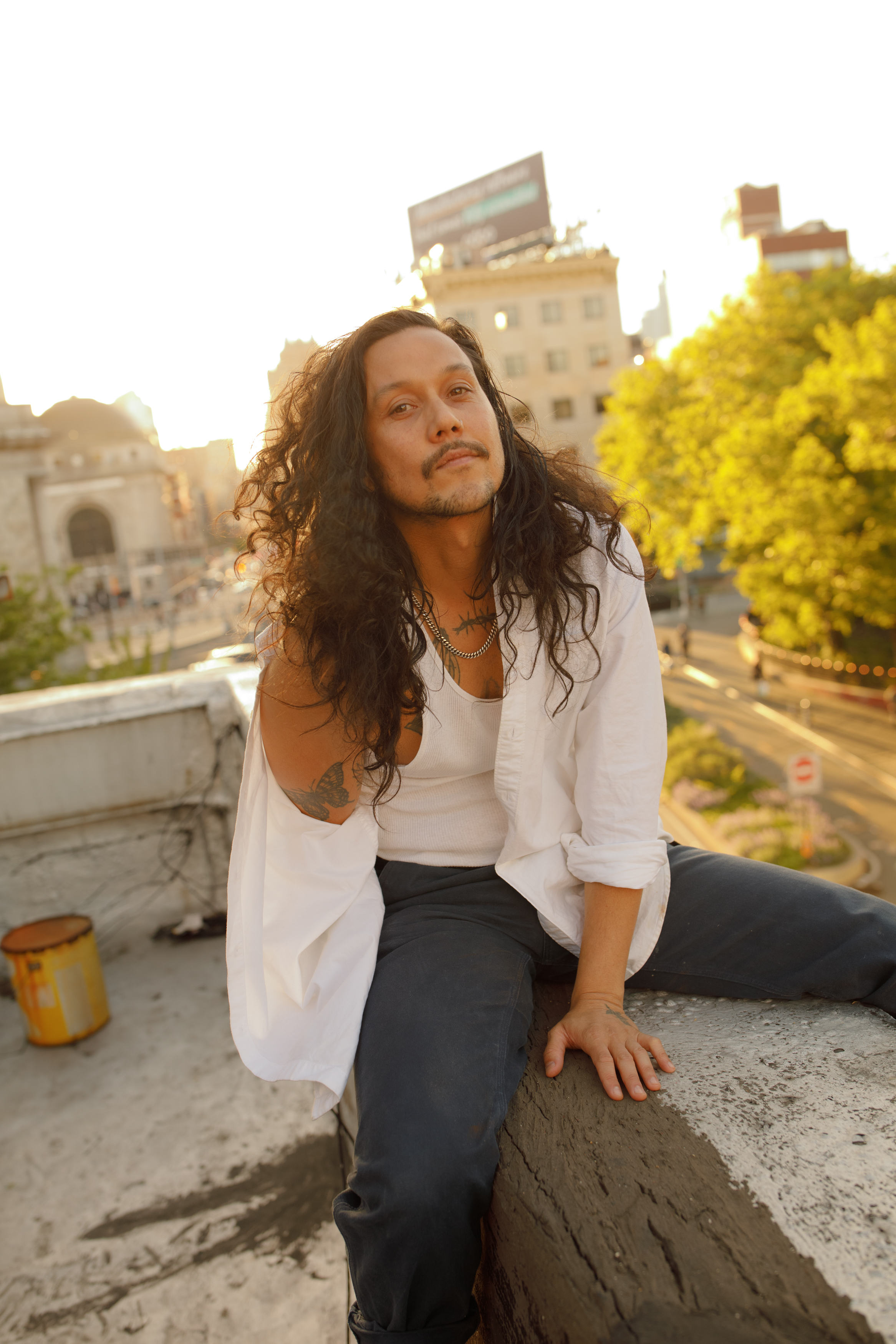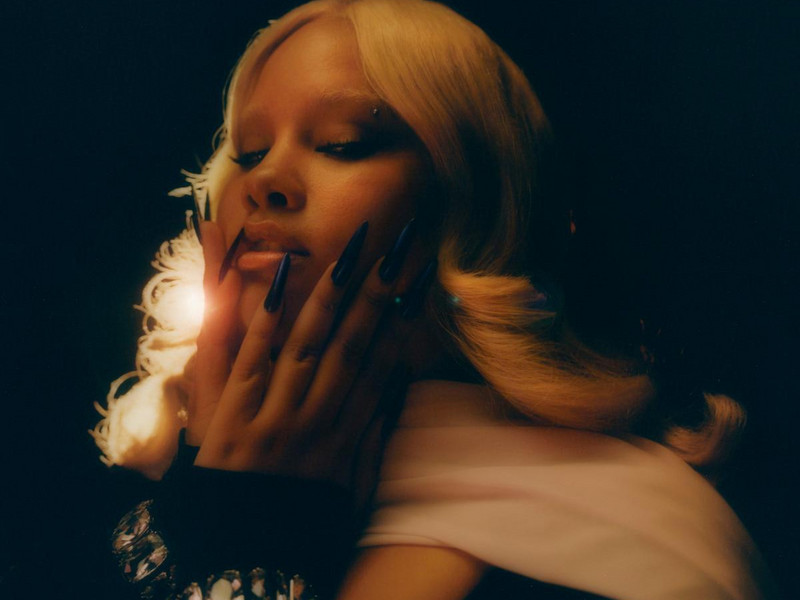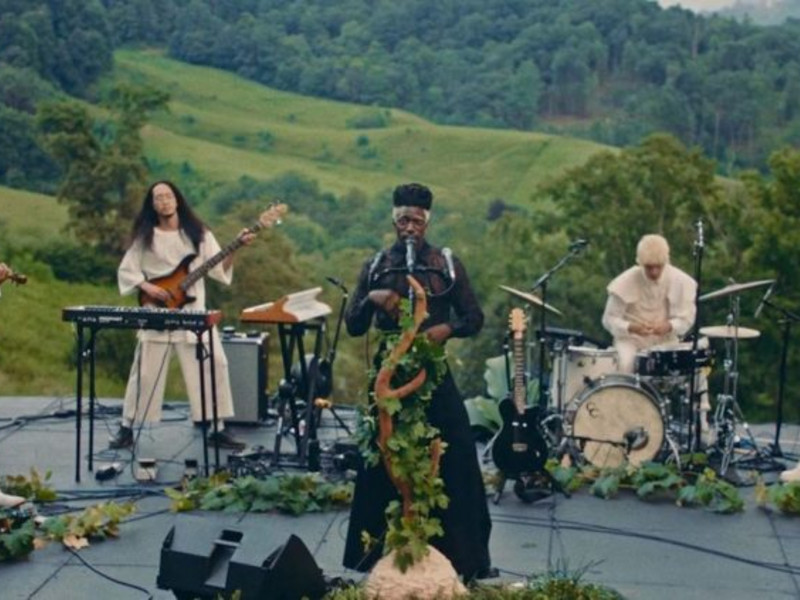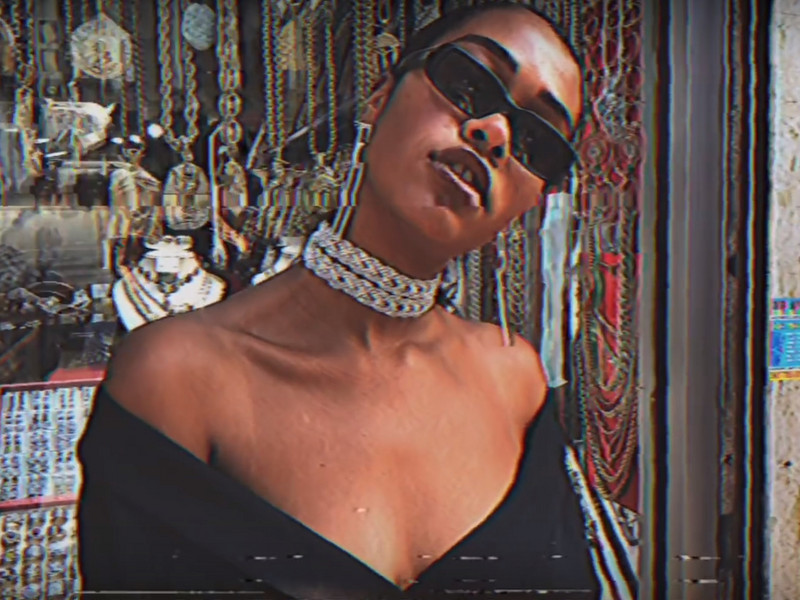Mitski, Miss America
Last week, which happened to be the day before her birthday, Mitski hosted an intimate show at Town Hall as part of her “Amateur Mistake” tour. It was a stripped-down, full-length performance of her album, featuring only herself, an acoustic guitarist, and an upright bass. The audience exuded a quiet sense of reverence. Just before concluding the show with some of her earlier music, Mitski invited the previously silent crowd to sing along, proclaiming, “We can forgive each other that much.”
“Amateur Mistake” takes its name from lyrics in the first song on the album, referencing the all-too-familiar act of making promises that can't be kept and realizing that “when you break them, they break you right back.” However, Mitski has upheld her promises, both to herself and to her devoted fans. In a pre-show speech, she alludes to a fan favorite from her sophomore album, stating, “I was wondering whether I could keep dreaming for a little bit longer, or whether it was time for me to let go and be more realistic — let other, more ambitious, more talented people go that way and stay behind myself. But I couldn't let it go. And I was in New York while I was dreaming. God, I was so stubborn, and I just kept dreaming, and now it's been ten years, and, I guess technically, all my dreams came true… Thank you, New York, for growing up with me.”
In sound, writing, and performance, Mitski appears to have reached a pinnacle of maturity. Compared to her early work, she allows herself to be softer, letting shine the ferocity of the words themselves. Her vocal delivery is clear and gentle, almost a whisper at times, a stark contrast to her past songs like “Drunk Walk Home” and “Townie,” known for their fuzzy, passionate vocals. The warm country twang that infuses the instrumentals is unlike anything we've heard from her before, a welcomed surprise. Her writing becomes more self-reflective, as she sings of drinking, dying, and existential dread. If Mitski's previous albums symbolized her tumultuous adolescence and anxious twenties, The Land Is Inhospitable And So Are We represents a retirement, akin to rocking on a porch on a peaceful farm.
Although Mitski gained more popularity from her music starting in 2018, she's no musical novice. The first time I listened to Mitski, I’m 14 and in Ohio, watching an episode of Adventure Time. Someone sings something about not knowing where to put their hands – I start crying and don’t know why. I google the lyrics and find Mitski, I devour her entire discography on Youtube, and I watch the “Your Best American Girl” music video, crying even more, realizing that losing to a blonde girl and being left with your own hand was an all-too-common experience.
The first time I listened to The Land Is Inhospitable and So Are We, I’m 21 and in New York, walking myself home from the club. I’m stumbling and kicking cans down the street. I spent most of my teenage years alone listening to Mitski. The same can be said seven years later.
"I Don't Like My Mind" — it’s the fourth song on the album, but the title catches my eye, so it’s where I start. Mitski wails like the wind. It’s despondent. It’s hysterical. It’s too familiar. Mitski’s singing about eating a whole cake and throwing it up, and I’m going home to eat cold pasta and contemplate past loves. I fear that I'll forever be stranded on the West Side, no matter how far I walk.
"The Deal" —that midnight walk Mitski references is the one I’m taking right now. Perhaps this album is meant to be savored while walking home alone, yearning not to be the kind of person who always finds themselves walking home alone. The song and I both ache to share life with someone, even if it means sharing the consequences of our actions. Does the desire to share life also entail sacrificing freedom? Is loneliness the price of independence? Mitski's song builds to a crescendo that evokes memories of movie scenes where people run alongside departing trains, desperate to maintain eye contact with their departing lovers. Had I sprinted, I might have caught that bus.
“When Memories Snow" feels strangely triumphant, or perhaps its resilience masquerading as triumph. There might be a distinction, or maybe not. True triumph might be reserved for those whose lives don't demand resilience. The song has a touch of madness, and it yearns for a respite — I feel the same. It's a bit hysterical, just like me, typing frantically as I walk. Names and footprints carved in dried cement keep time with the sound of horns. I'm reminded of the time when I believed Laurel Hell would be Mitski's final album — and given how virality was reductive to both her and her music, I couldn't blame her.
"My Love Mine All Mine" — Heavy boots, a sad circus. I walk past a church here and a solemn understanding washes over me. Amidst the pit in the construction zone, I have an epiphany — the only thing truly mine is my capacity to love. It's a moment of sympathetic, bittersweet acceptance, wrapped in tenderness. There's a longing, but also a melancholic smile. The departure of someone I loved does not mean the departure of my ability to love. It's a hard realization to embrace.
"The Frost" —The first thing I notice is the slide guitar. The second thing is the smell of sewer water, and the discarded cigarette packs in the puddles. I recall my freshman year when I saved money by not buying cigarettes because I’d find packs on the ground. “You were my best friend; now I’ve no one to tell how I lost my best friend.” I know how to get home from here, but I wish I didn't have to make the trip alone. I remember walking my old best friend home in the rain on his last day in the country. We exchanged "I love yous." I miss him, I’ll love him forever, and his memory is all I have; these three statements can all be true at the same time.
"Star" — Here the mood turns optimistic. The crickets chirp loudly in the bushes, Spirit Halloween has made its annual return, and I’m fondly thinking of people. Even if the love isn’t present at this moment, its memory lingers the same way we gaze at light emitted by long-dead stars. Towards the end, the song feels like soaring through the sky.
"I’m Your Man" — Scrap everything I said about optimism. This song is like walking through a tempest. It's a numb, disbelieving and regretful sensation. It's apologetic — "You're a dog, and I'm your man; you believe in me like a god, and I destroy you like I am." Mitski's voice is heaven-sent, and if there's one thing she loves, it's dog motifs. There's something about animalistic ferocity as an expression of love. Those dogs in the background, were they the losing ones she bet on before?
"I Love Me After You" — A slow, steady, stone-faced march. The swaying of street lights, the wind at my back; the song can be interpreted in a few ways. "I love me after you", as in "I love myself secondary to you, I love myself in relation to you.. Or perhaps it’s, "I love myself after I've finished loving you," a statement of sequence rather than priority — once we're done loving, I return to myself, or even, "I love myself now that you are in the past." Mitski transitions from addressing the "king of all the land" to becoming him. This is the final song on the album. If this were the end of my walk, it would serve as a strong, solemn finale. But I'm still ten minutes away from home.
"Bug Like An Angel" — This song preceded everything else on the album. In my initial listen, I wonder if I drink for the same reason that Mitski suggests, because “a drink feels like family." The night it was released, I treated myself to a café,ordered a cocktail, noticed a bug on it, and bit into what I thought was ice, but turned out to be a massive shard of glass... It's poetic, this punishment for my indulgence— it's eerily fitting. Now, as I walk home, I pass by some kids checking in on each other, joking about how it's not normal to go out and drink every night. Tonight, I cashed in the few remaining favors I had because I couldn't afford a cocktail.
"Buffalo Replaced" — This is what Mitski meant when she described this as her most American music. It brings to mind the track from Laurel Hell, "Heat Lightning," in its dependable, rhythmic plodding. I'm nearly home, and it's an arduous walk, much like the slow stride of a large grazing animal. I pass by the KFC near my house in the same way a buffalo grazes a meadow.
"Heaven" — This marks the conclusion of the album, and I've arrived home. It's a country waltz, gentle, and devoid of demands. I feel like a genuine Southern belle, being escorted to my doorstep or greeted as I descend the stairs for prom night. It's akin to receiving a chaste, unexpectant peck on the cheek — sometimes I yearn for that to be all someone desires from me, and at other times, I wish I could be content with just that. "I bend like a willow thinking of you—" I'm about to eat some pasta and think about that line.
